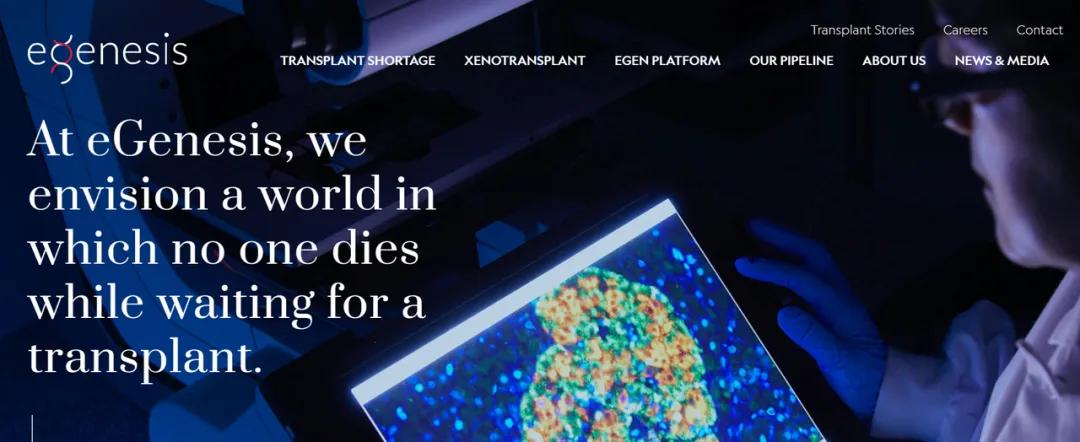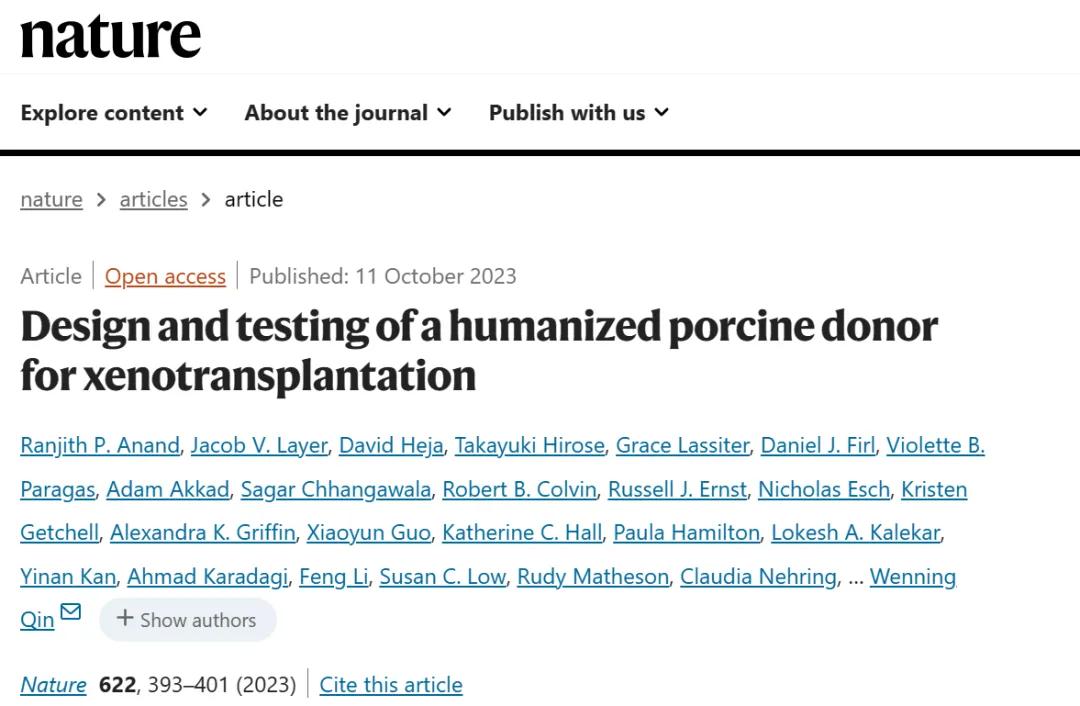Create news again
On March 21,2024, Massachusetts General Hospital (Massachusetts General Hospital MGH) announced the completion of the world's first surgical —— transplantation of a gene-edited pig kidney to a 62-year-old male patient with end-stage renal disease (ESKD). Surgeons at the Massachusetts General Transplant Center performed a four-hour operation on Saturday, March 16.
This procedure marks an important milestone in the quest to provide a more accessible organ to patients.
Anne Klibanski, head of Massachusetts General Hospital, said: " Nearly 70 years after the first successful kidney transplant, our clinicians are once again offering innovative treatments to help our patients and others around the world reduce the burden of disease.”
"The success of this transplant is the result of decades of efforts by thousands of scientists and doctors. We are honored to have played an important role in this milestone. We hope that this transplant approach will provide a lifeline for the millions of patients with renal failure worldwide."Said Tatsuo Kawai, director of kidney transplant medicine.

Pig kidney were provided by eGenesis, Cambridge, MA. The company uses CRISPR-Cas 9 technology for gene editing of pig donors, removes harmful pig genes and adding some human genes to improve its compatibility with humans.
In addition, scientists have inactivated porcine endogenous retroviruses in experimental pigs to eliminate any risk of human infection. Over the past five years, MGH and eGenesis have conducted extensive collaborative research, with the results published in Nature in 2020.

eGenesis CEO Mike Curtis said, " We are grateful for the courageous contribution to the scientific progress of transplantation. We congratulate the MGH partners on achieving this historic milestone. We also recognize the work and dedication of the eGenesis team to make this achievement possible. This represents a new frontier in medicine and demonstrates the potential of genome engineering to transform the lives of millions of patients with kidney failure worldwide.”
This successful living recipient surgery is a historic milestone in the emerging field of —— xenotransplantation (transferring an organ or tissue from one species to another) and a potential solution to the global organ shortage. According to the network, more than 100,000 people in the United States are waiting for an organ transplant, and 17 people die every day (UNOS). The kidney is the organ that most frequently requires transplantation. Based on the literature published in the Journal of the American Society of Nephrology, the incidence of end-stage renal disease in the US is expected to increase by 29-68% by 2030.
Patient Richard Slayman, who has completed the transplant operation, is currently recovering well at the General Hospital and is expected to be discharged soon. Slayman Bring new hope to countless patients with end-stage kidney disease, and opens up new areas of organ transplantation.
Joren C Madsen, director of the MGH Transplant Center, said: " The real hero today is Mr.Slayman, because the success of this pioneering operation was once considered unthinkable.”
It is worth noting that not long ago, the clinical breakthrough of liver xenotransplantation at Xijing Hospital of Air Force Military Medical University, successfully transplanted a whole liver from a multi-gene-edited pig into a brain-dead patient. During the operation, bile was secreted immediately after restoring blood flow, and no superacute rejection was seen. The pig liver secreted more than 30 ml of bile every day, and the color and texture of the liver remained normal after 10 days. The liver, from a gene-edited pig raised by Zhongke oge Company in Chengdu, China, contains six genetic modifications: three proteins were inactivated and three human protein genes were introduced to prevent donors from rejecting pig organs.
The success of these operations shows the world the great potential of gene editing technology, revolutionary not only in the medical field, but also in addressing global challenges such as organ shortages.




